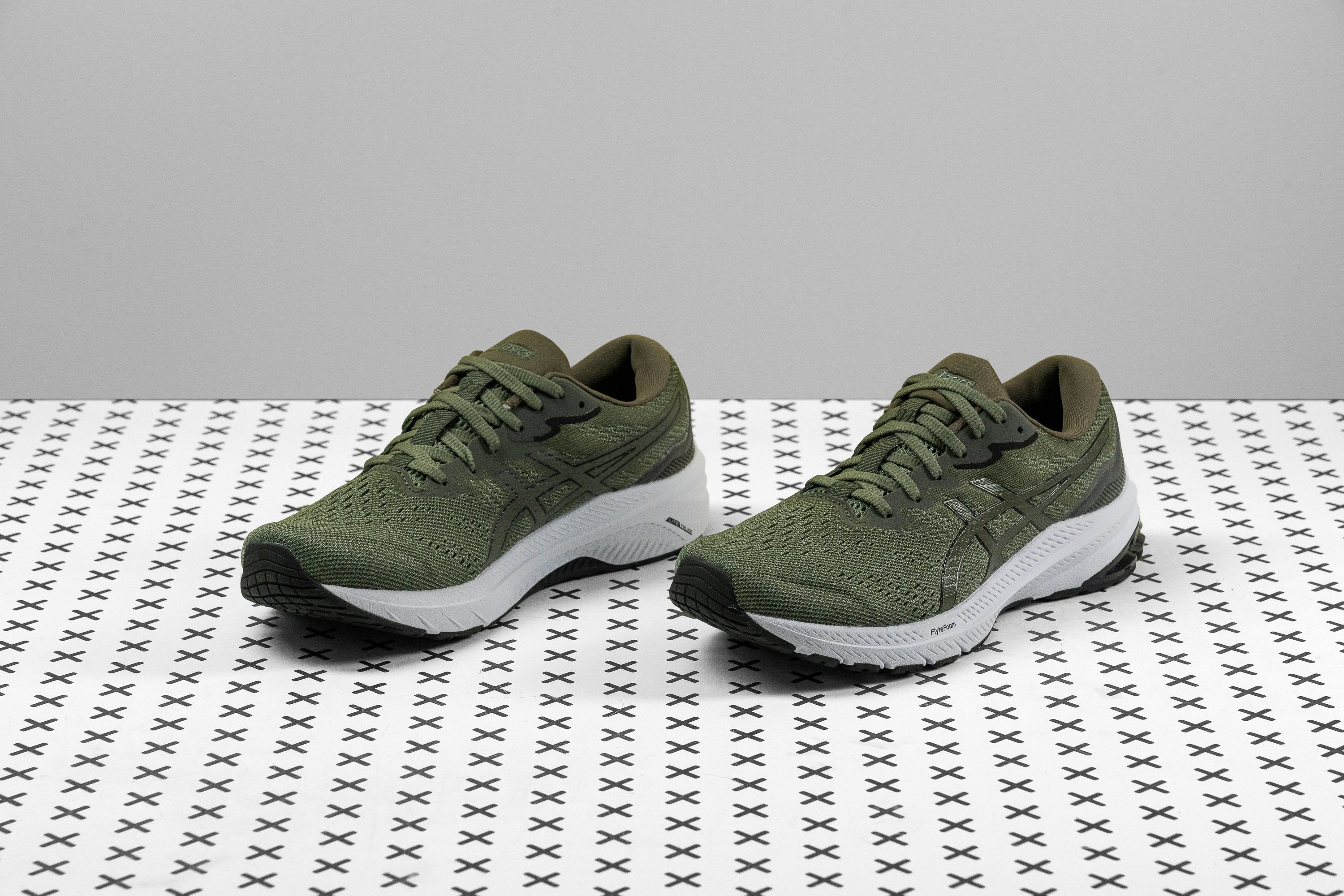Our verdict
- Top pick in best stability running shoes (2023)
Pros
- Stable ride
- Unobtrusive for neutral runners
- Lightweight
- Comfortable all-day
- Very affordable price
- More flexible than before
- Perfect fit for narrow feet
Cons
- Not for wide feet
- Simple looks
Audience verdict
Comparison
The most similar running shoes compared
+ + Add a shoe | |||||
|---|---|---|---|---|---|
| Audience score | 85 Good! | 83 Good! | 87 Great! | 78 Decent! | |
| Price | £115 | £160 | £110 | £115 | |
| Pace | Daily running | Daily running | Daily running | Daily running | |
| Shock absorption | - | Low | Moderate | Moderate | |
| Energy return | - | Low | High | Low | |
| Traction | - | Moderate | - | High | |
| Arch support | Stability | Stability | Stability | Stability | |
| Weight lab Weight brand | 9.9 oz / 281g 9.5 oz / 270g | 11.6 oz / 329g 11.3 oz / 320g | 10.3 oz / 293g 10.5 oz / 297g | 9.6 oz / 272g 9.3 oz / 265g | |
| Drop lab Drop brand | 9.0 mm 8.0 mm | 7.9 mm 10.0 mm | 9.8 mm 10.0 mm | 9.6 mm 8.0 mm | |
| Strike pattern | HeelMid/forefoot | Mid/forefoot | HeelMid/forefoot | HeelMid/forefoot | |
| Size | True to size | True to size | True to size | True to size | |
| Midsole softness | Soft | Balanced | Firm | Soft | |
| Difference in midsole softness in cold | Small | Normal | Small | Normal | |
| Toebox durability | - | Good | Decent | Decent | |
| Heel padding durability | - | Good | Good | Good | |
| Outsole durability | - | Good | Bad | Good | |
| Breathability | - | Moderate | Warm | Warm | |
| Width / fit | Narrow | Narrow | Medium | Medium | |
| Toebox width | - | Medium | Wide | Medium | |
| Stiffness | Stiff | Moderate | Stiff | Moderate | |
| Torsional rigidity | Moderate | Stiff | Moderate | Stiff | |
| Heel counter stiffness | Flexible | Moderate | Moderate | Moderate | |
| Heel lab Heel brand | 31.5 mm 20.0 mm | 33.2 mm 31.0 mm | 32.9 mm 31.0 mm | 35.4 mm 34.5 mm | |
| Forefoot lab Forefoot brand | 22.5 mm 12.0 mm | 25.3 mm 21.0 mm | 23.1 mm 21.0 mm | 25.8 mm 26.5 mm | |
| Widths available | NormalWideX-Wide | Normal | Normal | NormalWideX-Wide | |
| Orthotic friendly | ✓ | ✓ | ✓ | ✓ | |
| Season | - | All seasons | All seasons | All seasons | |
| Removable insole | ✓ | ✓ | ✓ | ✓ | |
| Ranking | #419 Bottom 38% | #259 Bottom 32% | #172 Top 45% | #339 Bottom 11% | |
| Popularity | #515 Bottom 24% | #144 Top 38% | #354 Bottom 7% | #135 Top 36% |
Size and fit
Size
ASICS GT 1000 11 fits true to size (17 votes).
Who should buy the ASICS GT 1000 11
Get the GT 1000 11 if you want a:
- supportive road running shoe for both mild to moderate overpronators (feet roll inward) and neutral runners
- budget shoe that's light and comfortable for long hours
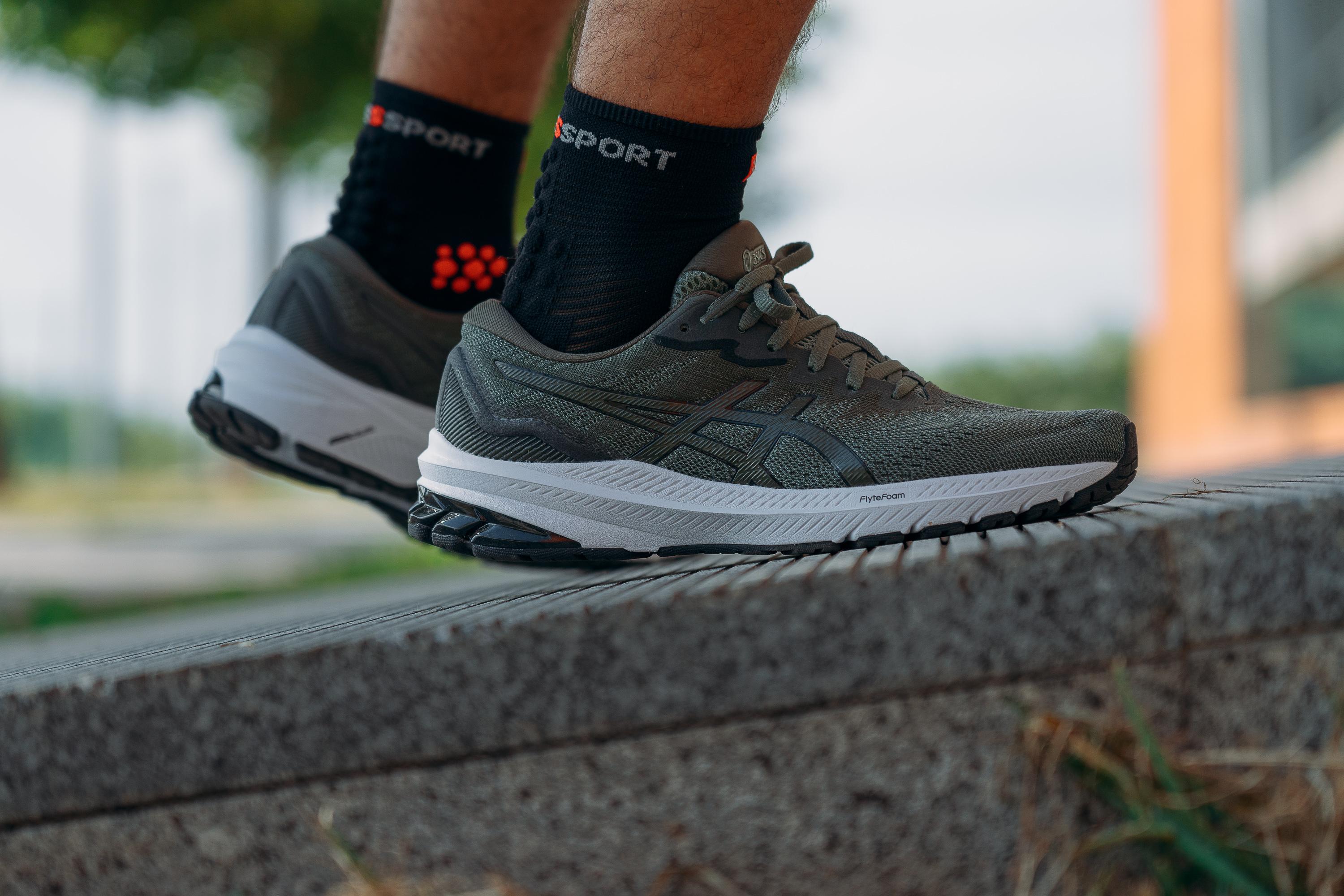
Who should NOT buy it
If you suffer from excessive overpronation, you might want to go for the ASICS GT 2000 10 instead. Want room for wide feet? Our tests tell us that the ASICS Kayano 28 with its roomier toe box will serve you better than the ASICS GT 1000 11.
ASICS GT 1000 11 vs. 10
We found this iteration of the ASICS GT 1000 to be a notable update. And this is because of the following:
- a softer heel and a more flexible forefoot to amplify comfort
- less invasive underfoot support, making it suitable for neutral runners as well
- less padding in the collar and tongue moves from being overkill to just right
- sheds off some weight, going from 281 grammes/9.9 ounces to 270 grammes/9.5 ounces in US men's size 9
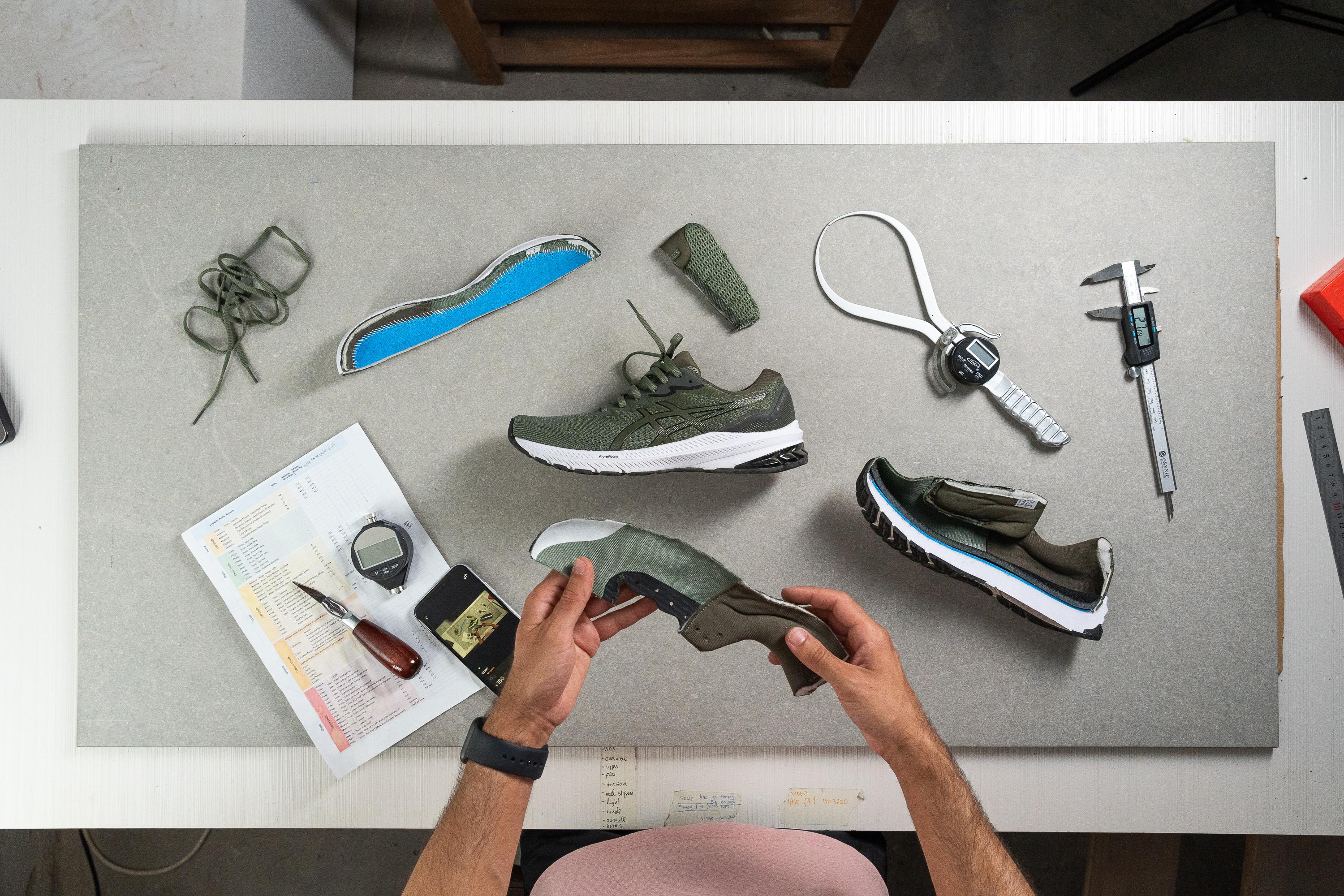
An inclusive support
The GT 1000 11 is a stability running shoe that provides support for flat feet and overpronation without being too much. It can also work as a supportive running shoe for neutral runners without being too much.
Checking the GT 1000 11's torsional and longitudinal flexibility, we gave the shoe a 3 out of 5 on both. It is definitely less stiff and more forgiving than the traditional stability shoes like ASICS Gel Kayano 30 which you would not be able to twist like that.
Not rigid like most stability shoes
The ASICS GT 1000 line has always consisted of running shoes that required a break-in period. But not anymore! In this version, we experienced a comfortable in-shoe feel from the start.
Neither does the shoe feel hard on the feet after a long run.
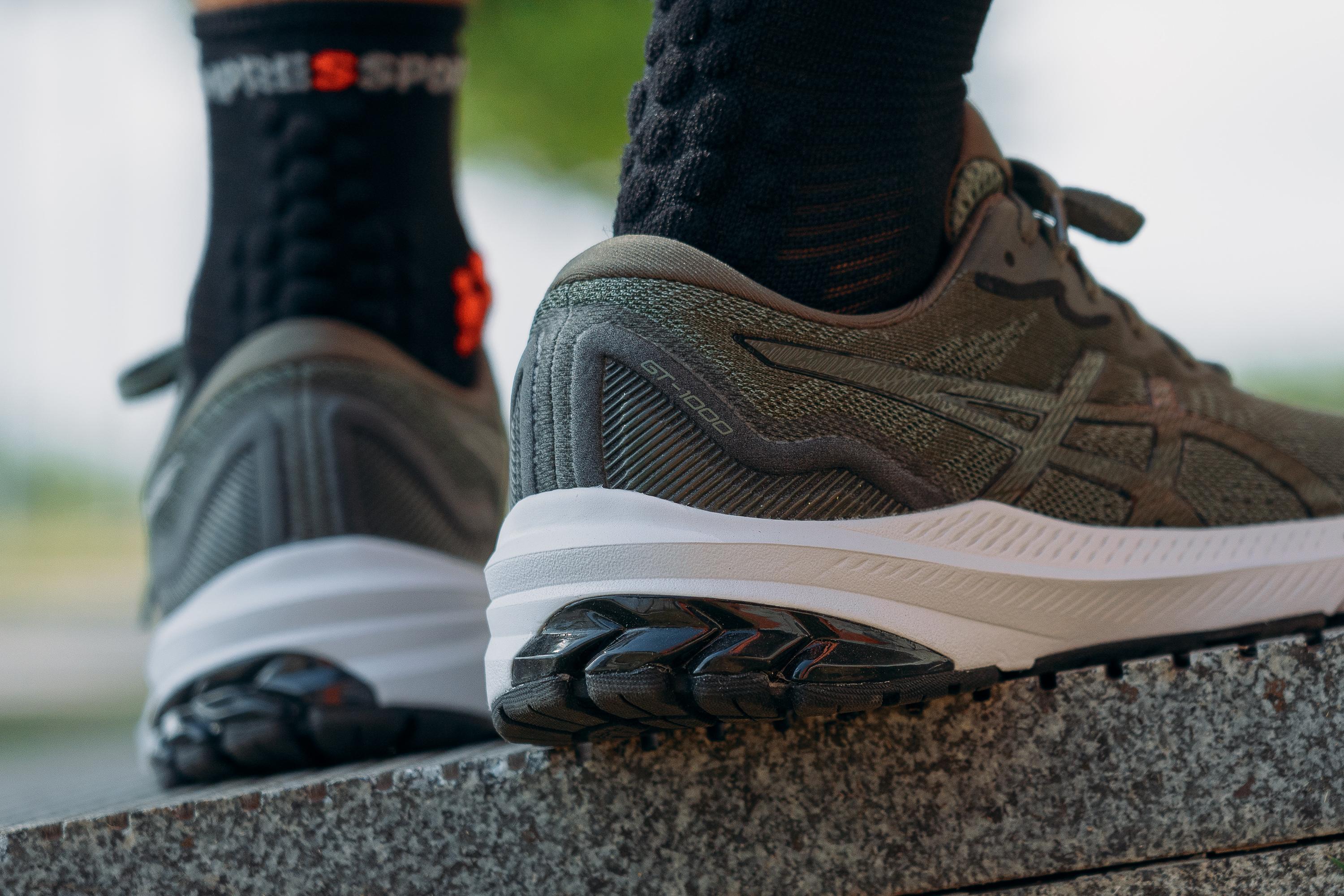
The GT 1000 11 is indeed a pretty soft shoe, even compared to neutral trainers. Our durometer shows 12.8 HA which is an impressive 87% softer than average!
What's also interesting is that the foam barely firms up in the cold. It got only 12.3% harder whereas most shoes stiffen up by around 20-30%.
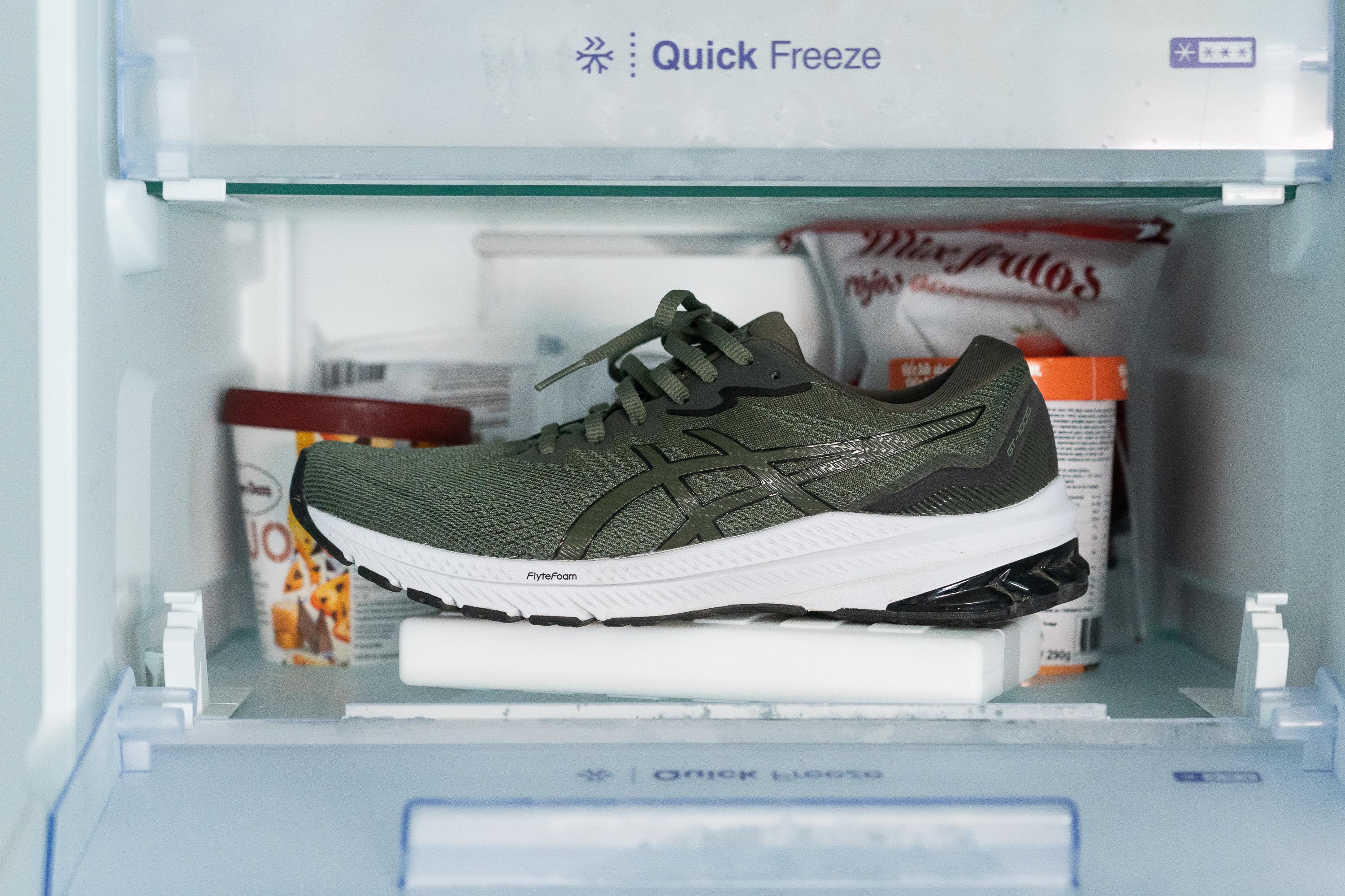
The ASICS GT 1000 11 keeps weight down
On average, stability shoes weigh in at 298 grammes/10.5 ounces in US men's 9. Meanwhile, the ASICS GT 1000 11 only weighs in at 270 grammes/9.5 ounces.
This makes for a very light arch support!
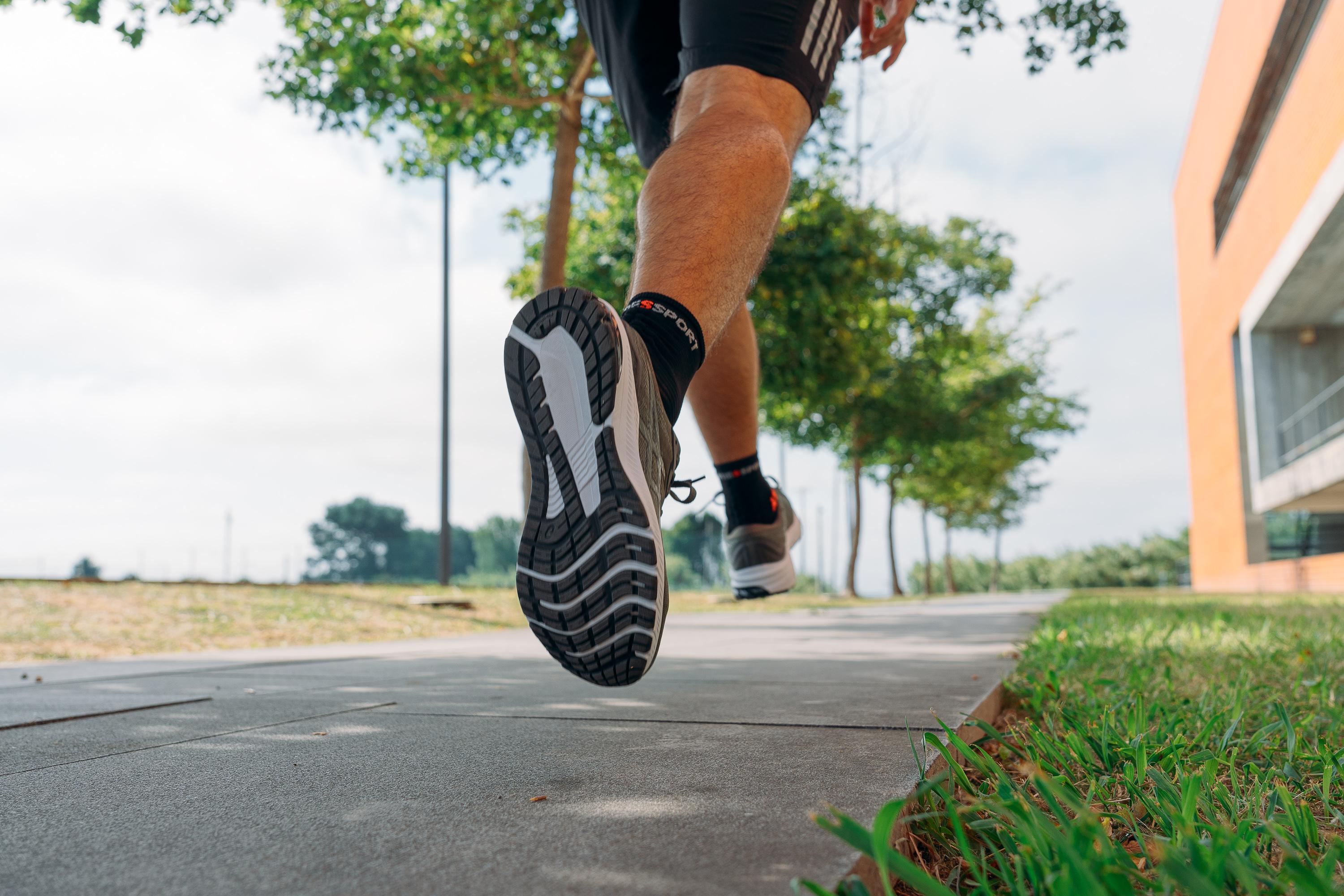
Favours the narrow feet
This support shoe has a pretty slim fit, making it more suitable for those with narrow feet.
We measured the widest part of the toebox at 98.2 mm which is right at the average of road running shoes. The problem is that it gets considerably narrow around the toes.
But the good news is that this ASICS shoe is available in wide and even extra-wide options!

Renowned ASICS durability
The brand holds its mark even in a budget-friendly shoe like the GT 1000 11. We found the shoe's outsole rubber to be pretty hard-wearing. With a durometer measurement of 85.5 HC, it turns out to be firmer than average!
So, as long as the outsole doesn't start peeling away from the foam, the rubber itself should last many miles.
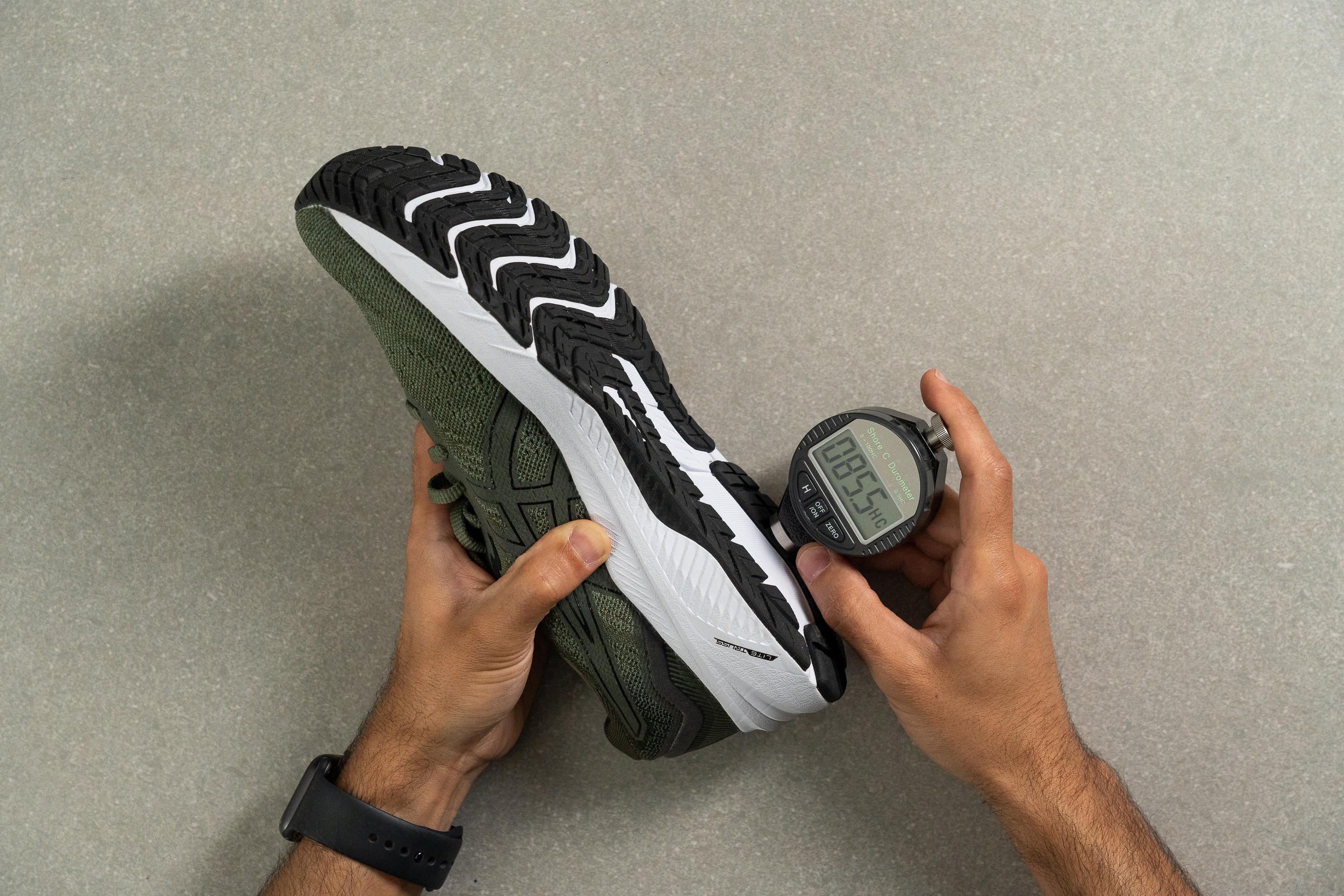
Won't hurt your pocket
Given that the average price of stability running shoes is £140, this ASICS shoe is truly impressive for its modest price of £100.
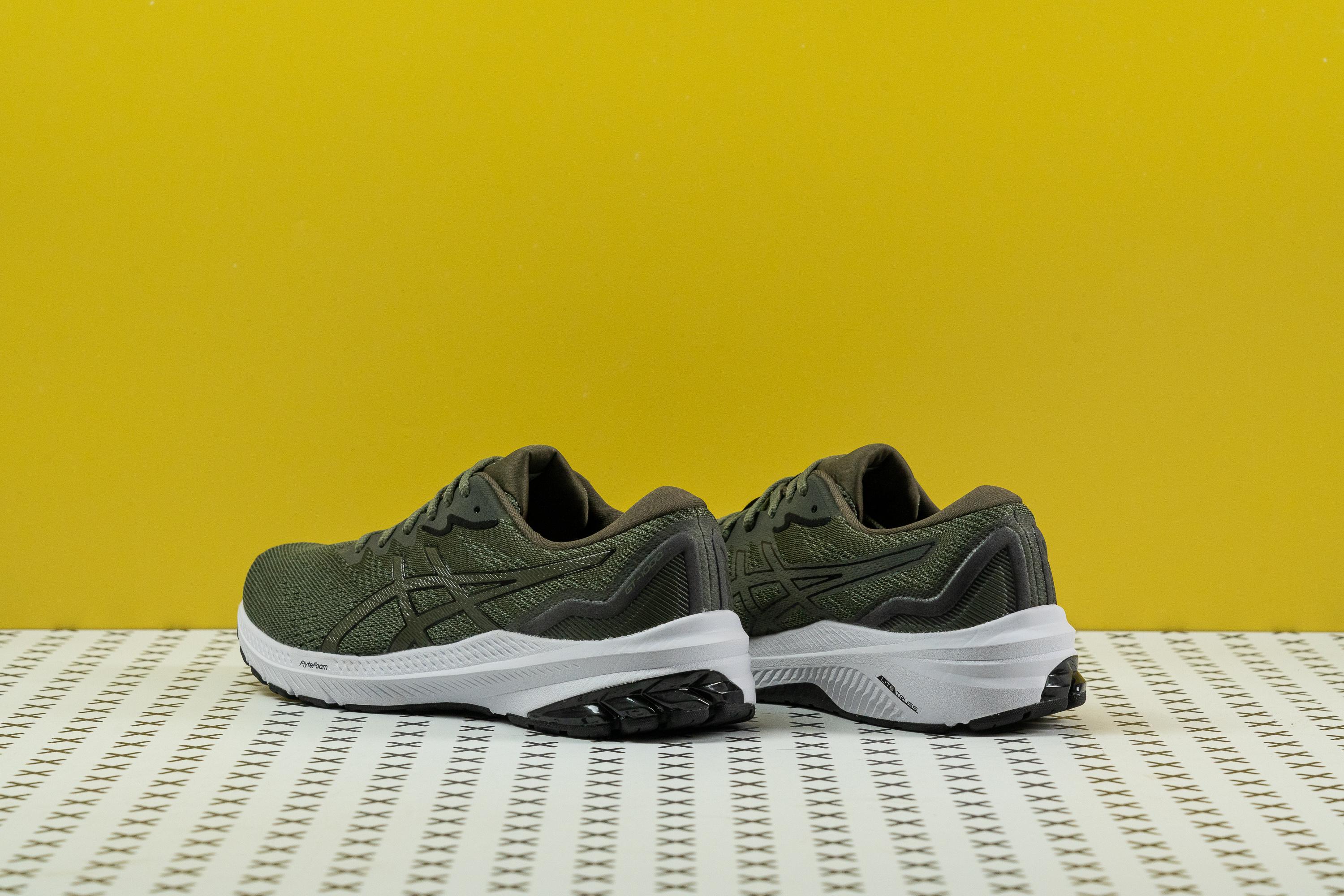
Complete lab-specs overview
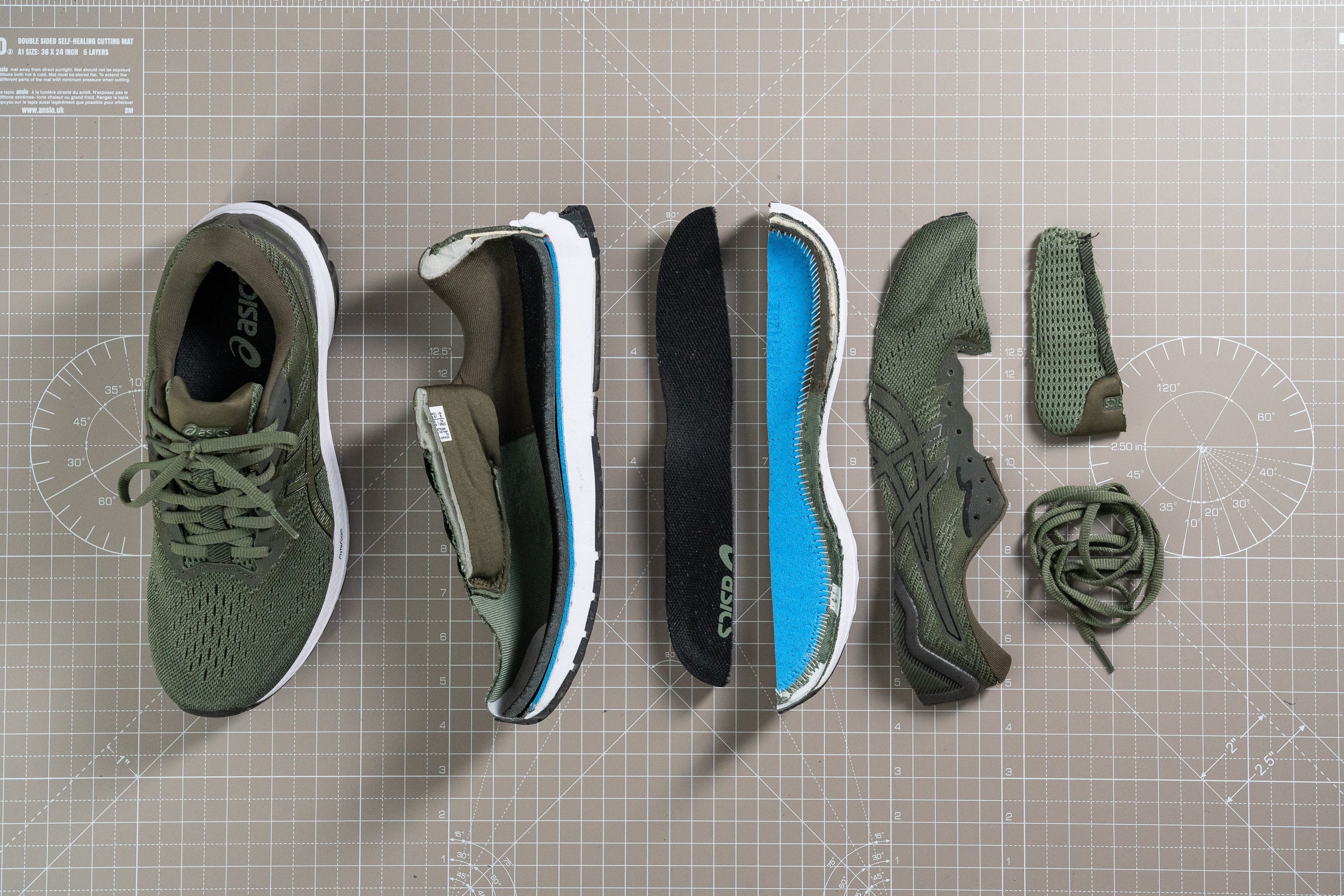
| ASICS GT 1000 11 | Average | |
| Whole shoe |
||
| Weight (g) | 281* | 262 |
| Drop (mm) | 9.0 | 8.6 |
| Flexibility of the shoe (N) | 23.8 | 33.2 |
| Flexibility of the shoe (Freezer 20 min) (N) | 45.0 | 45.9 |
| Flexibility of the shoe (% of change) | 89.4% | 44.8% |
| Longitudinal flexibility (1-5 scale, 5 being the stiffest) | 3 | 2.9 |
| Torsional flexibility (1-5 scale, 5 being the stiffest) | 3 | 3.1 |
| Upper |
||
| Thickness - Tongue (mm) | 6.4 | 5.8 |
| Width Upper - Forefoot: Max width (mm) | 98.2 | 97.6 |
| Flexibility of the heel counter (1-5 scale, 5 being the stiffest) | 2 | 2.5 |
| Tongue: gusset type | none | - |
| Heel: pull tab | none | - |
| Midsole |
||
| Width Midsole - Forefoot (mm) | 110.3 | 112.5 |
| Width Midsole - Heel (mm) | 89.2 | 89.7 |
| Stack - Forefoot with insole (mm) | 22.5 | 24.6 |
| Stack - Heel with insole (mm) | 31.5 | 33.2 |
| Durometer Midsole Heel (Room temperature) (HA) | 12.8 | 25.0 |
| Durometer Midsole - Heel (Freezer 20 minutes) | 14.3 | 31.5 |
| Durometer Midsole - Heel (% of change) (TEST) | 12.3% | 26.7% |
| Outsole |
||
| Outsole thickness (Heel) (mm) | 2.5 | 3.4 |
| Durometer Outsole Heel (Room temperature) (HC) | 85.5 | 79.8 |
| Insole | ||
| Insole Heel Thickness (mm) | 4.9 | 4.4 |
| Insole: removable | yes | - |
*Disclaimer: The weight of the ASICS GT 1000 11 was originally measured in a men’s US 8 (265g per shoe). To adjust the weight to a US 9, we used our proprietary formula which is based on the weight measurements of over 40 shoe sizes.

